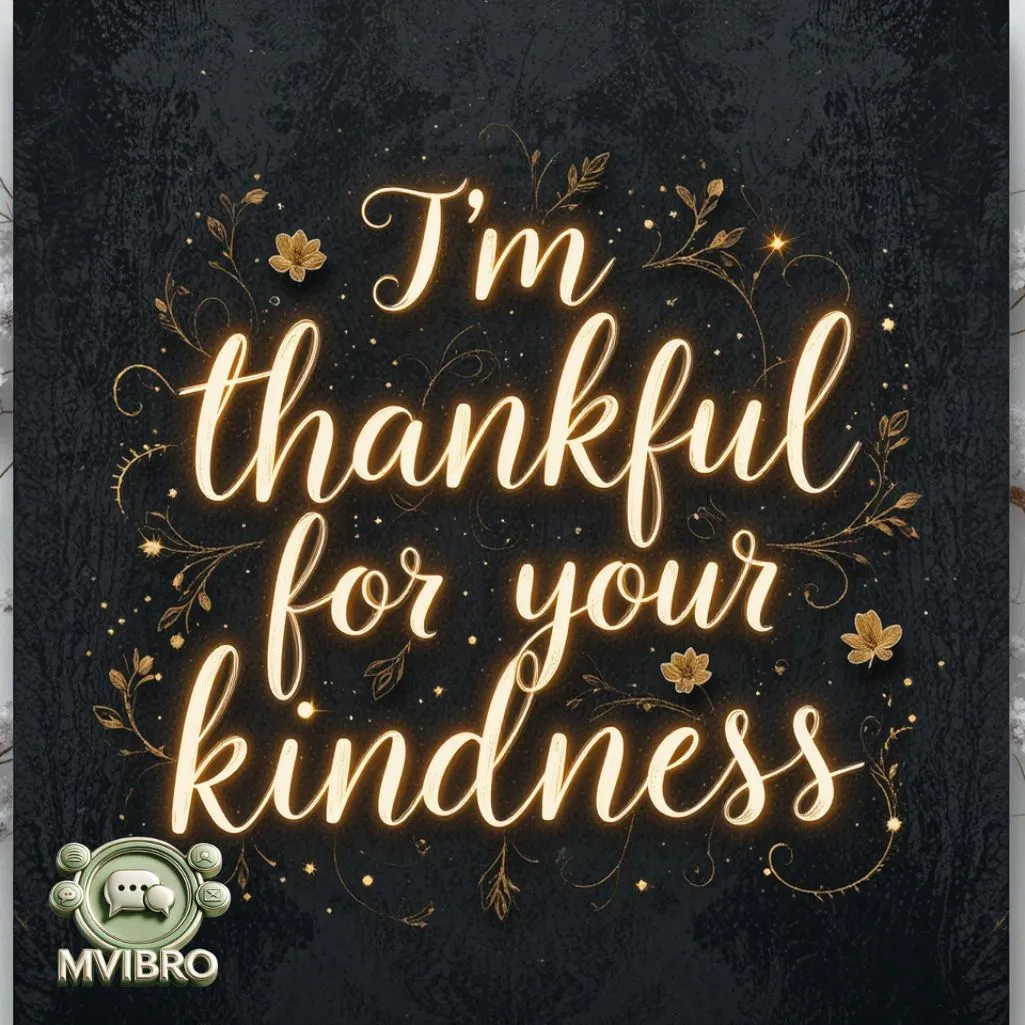Hearing “Sorry to hear that” is a common part of conversations when sharing bad news or disappointments. When it’s about missing an opportunity, feeling unwell, or facing a challenge, this phrase conveys empathy and concern.
But how you respond can shape the interaction when you choose to acknowledge the sympathy, lighten the mood, or steer the conversation forward.
Crafting the right reply matters because it helps enhance connections, maintain warmth, and keep conversations engaging. A simple “thank you” works, but a thoughtful, creative response can make the exchange more personal and meaningful.
In this guide, we’ll explore 35+ creative replies to help you express gratitude, shift the tone, or even add humor when responding to “Sorry to hear that.” Let’s dive in!
Thanks for your concern!
This response acknowledges the person’s sympathy while keeping the conversation simple. It’s a polite way to show appreciation without going into details.
- Thanks for your concern. I truly appreciate it.
- I value your concern. It means a lot to me.
- Your concern is comforting. Thanks for reaching out.
This response keeps things short and respectful. It shows gratitude while maintaining a neutral tone.
I appreciate your empathy.
This reply expresses gratitude for the other person’s ability to understand your feelings. It helps build emotional connections.
- I appreciate your empathy. It means a lot.
- Your empathy is comforting. Thank you for that.
- I value your kind words. Thanks for understanding.
This response highlights appreciation while reinforcing a sense of connection and support.
It means a lot that you care.
This response emphasizes how much their concern matters to you. It makes them feel valued for their support.
- It means a lot that you care. Thank you.
- Your support truly means a lot to me.
- I appreciate your kindness. It makes a difference.
This response creates a warm tone and encourages continued support.
Thank you for your sympathy.
This phrase is a simple yet effective way to acknowledge their sympathy while keeping the conversation concise.
- Thank you for your sympathy. I appreciate it.
- Your sympathy means a lot. Thanks for caring.
- I truly appreciate your kind words.
It’s a polite and direct way to accept their sympathy without extending the discussion.
Your kindness is comforting.
This response highlights the comforting effect of their words. It helps strengthen bonds.
- Your kindness is comforting. Thank you.
- I appreciate your kind words. They help a lot.
- Your support brings me comfort. Thanks again.
This response reassures them that their concern makes a difference.
I really appreciate your support.
This phrase expresses deep gratitude for their encouragement and care.
- I really appreciate your support. It means a lot.
- Your support gives me strength. Thank you.
- Thanks for standing by me. It truly helps.
This response makes the other person feel valued and appreciated.
Thanks for thinking of me.
This is a simple way to show gratitude for their thoughtfulness. It acknowledges their effort in reaching out.
- Thanks for thinking of me. I appreciate it.
- Your concern means a lot. Thanks for reaching out.
- I value your thoughts. Thank you for caring.
This response keeps the conversation light yet meaningful.
Your words mean a lot.
This reply shows that their message had a positive impact, reinforcing their kindness.
- Your words mean a lot. Thanks for your kindness.
- I appreciate your thoughtful words. They help.
- Thank you for your kind words. They truly matter.
It reassures the person that their concern was meaningful and appreciated.
It’s comforting to hear from you.
This response shows that their message brings warmth and reassurance.
- It’s comforting to hear from you. Thanks for reaching out.
- Your message truly comforts me. I appreciate it.
- Thank you for your kind words. They bring peace.
This response makes them feel that their words made a difference.
I’m grateful for your thoughts.
This response emphasizes gratitude and appreciation for their concern.
- I’m grateful for your thoughts. Thanks for caring.
- Your thoughtful message means a lot. I appreciate it.
- I value your concern. Thank you for your kindness.
It acknowledges their effort and encourages further connection.
Your compassion is appreciated.
This phrase highlights their kindness and shows appreciation.
- Your compassion is appreciated. Thank you.
- I truly value your kindness. It means a lot.
- Your support and compassion bring comfort.
It makes them feel that their concern has a real impact.
Thank you for your understanding.
This response is great when someone shows patience or acknowledges your situation.
- Thank you for your understanding. I appreciate it.
- Your understanding means a lot. Thanks.
- I value your patience and kindness. Thank you.
It reassures them that their support is meaningful.
Your empathy is truly touching.
This response shows that their words had an emotional impact on you.
- Your empathy is truly touching. Thank you.
- I deeply appreciate your kindness and care.
- Your words bring comfort. Thanks for your support.
It makes them feel that their efforts to console you were effective.
Your compassion is appreciated.
This response expresses gratitude for the other person’s kindness and concern. It reassures them that their words are meaningful.
- Your compassion is appreciated. Thank you for your kindness.
- I value your compassion. It truly helps.
- Your kindness makes a difference. I appreciate it.
This response acknowledges their effort in a warm and appreciative manner.
Thank you for your understanding.
This phrase is useful when someone shows patience or acknowledges your situation with care.
- Thank you for your understanding. It means a lot.
- Your patience and support are truly appreciated.
- I’m grateful for your understanding. Thanks for being kind.
It reassures them that their empathy is noticed and valued.
Your empathy is truly touching.
This response highlights that their words had an emotional impact, making them feel valued.
- Your empathy is truly touching. Thank you.
- I appreciate your kind words. They bring comfort.
- Your understanding means a lot. Thanks for being thoughtful.
It reinforces a strong sense of appreciation and connection.
I’m grateful for your concern.
This reply expresses gratitude for their care and support during a difficult time.
- I’m grateful for your concern. It truly means a lot.
- Thank you for thinking of me. I appreciate it.
- Your concern is comforting. Thanks for reaching out.
It shows that their words have had a positive impact on you.
Your support means a great deal.
This response acknowledges the importance of their support, making them feel appreciated.
- Your support means a great deal. Thank you.
- I appreciate your encouragement. It helps more than you know.
- Thank you for always being there. Your support matters.
It reassures them that their kindness is meaningful and valued.
It’s nice to know you’re thinking of me.
This response makes the other person feel valued and appreciated for reaching out.
- It’s nice to know you’re thinking of me. Thank you.
- Your thoughtfulness means so much. I appreciate it.
- Thanks for checking in. It’s comforting to hear from you.
It creates warmth in the conversation while keeping it simple.
I’m thankful for your kindness.

This phrase expresses deep gratitude for their caring nature.
- I’m thankful for your kindness. It means a lot.
- Your kind words bring comfort. Thank you.
- I appreciate your kindness. It truly helps.
It strengthens emotional bonds and reinforces appreciation.
I appreciate your caring words.
This response acknowledges the comfort their words bring.
- I appreciate your caring words. They mean a lot.
- Your kindness is truly comforting. Thank you.
- Thank you for your thoughtful message. It helps.
It reassures them that their words are making a difference.
Your sympathy is comforting.
This response recognizes their attempt to provide support and comfort.
- Your sympathy is comforting. I appreciate it.
- Thank you for your kind words. They mean a lot.
- Your support brings me comfort. Thanks for caring.
It helps maintain a warm and appreciative interaction.
Thank you for reaching out.
This phrase expresses gratitude for their effort in checking on you.
- Thank you for reaching out. It truly means a lot.
- Your message is appreciated. Thanks for thinking of me.
- I value your thoughtfulness. Thank you for caring.
It acknowledges their concern in a polite and warm way.
Your words are very kind.
This response appreciates their kind and thoughtful message.
- Your words are very kind. Thank you.
- I appreciate your kindness. It means a lot.
- Your message brings comfort. Thanks for your support.
It reassures them that their kindness is noticed and valued.
I’m thankful for your support.
This phrase highlights appreciation for their encouragement.
- I’m thankful for your support. It means a lot.
- Your encouragement helps me more than you know.
- Thanks for being there. Your support is appreciated.
It lets them know their support is truly valued.
It’s good to hear from you.
This response makes the conversation feel welcoming and warm.
- It’s good to hear from you. Thanks for checking in.
- Your message brightened my day. Thank you.
- I appreciate you reaching out. It means a lot.
It helps create a friendly and engaging interaction.
Your compassion is appreciated.
This phrase acknowledges their kindness in a sincere way.
- Your compassion is appreciated. Thank you for caring.
- I truly value your kindness. It brings comfort.
- Your support means a lot. Thanks again.
It reassures them that their empathy is meaningful.
I appreciate your thoughtful words.
This response expresses gratitude for their kind and considerate message.
- I appreciate your thoughtful words. They mean a lot.
- Your kindness is comforting. Thank you.
- Your support is truly appreciated. Thanks for reaching out.
It reinforces warmth and appreciation in the conversation.
Thank you for your comforting words.
This phrase acknowledges the emotional support their words provide.
- Thank you for your comforting words. They help a lot.
- Your kindness is truly uplifting. I appreciate it.
- Your words bring peace. Thanks for reaching out.
It lets them know their words had a positive impact.
Your concern is deeply appreciated.
This response conveys deep gratitude for their thoughtfulness.
- Your concern is deeply appreciated. Thank you.
- I truly value your kindness. It means a lot.
- Your thoughtfulness brings comfort. Thanks again.
It reassures them that their concern is valued.
I’m touched by your kindness.
This phrase highlights that their words made an emotional impact.
- I’m touched by your kindness. Thank you.
- Your support truly means a lot. I appreciate it.
- Your thoughtfulness is deeply moving. Thanks.
It makes them feel that their words were meaningful.
Your words mean a lot to me.
This response emphasizes the importance of their message.
- Your words mean a lot to me. Thanks for your kindness.
- I appreciate your thoughtful message. It helps.
- Your support is truly valued. Thank you.
It reassures them that their words were appreciated.
I’m grateful for your support.

This phrase expresses deep appreciation for their encouragement.
- I’m grateful for your support. It truly helps.
- Your kindness gives me strength. Thank you.
- I appreciate your support. It means everything.
It strengthens the emotional connection and gratitude.
How to Reply to “Sorry to Hear That” Text
When someone sends a message saying “Sorry to hear that,” a thoughtful response can show appreciation. Keep it short yet meaningful.
- Thank you for your concern. I appreciate it.
- I truly appreciate your kindness. It means a lot.
- Thanks for reaching out. Your words bring comfort.
A simple acknowledgment lets them know their message is valued.
What to Reply When Someone Says “Sorry to Hear About Your Loss”
Losing someone is difficult, and responding to condolences with gratitude shows respect.
- Thank you for your kind words. They bring comfort.
- I appreciate your sympathy during this difficult time.
- Your support means a lot. Thank you for thinking of me.
These responses express appreciation while keeping the conversation graceful.
“Sorry to Hear That You Are Sick” Reply
When someone expresses concern about your health, a polite and grateful response helps maintain warmth.
- Thank you for your well wishes. I appreciate it.
- That means a lot. Hoping to feel better soon.
- Your kindness is comforting. I’m taking care of myself.
This keeps the response positive and appreciative.
“I Am Sorry to Hear That” Professional Way
In professional settings, responding with gratitude and reassurance keeps communication respectful.
- I appreciate your concern. Thank you for your support.
- Thank you for your understanding. I will manage accordingly.
- Your thoughtfulness is appreciated. I will keep you updated.
Keeping it professional yet warm ensures a balanced response.
How to Respond to “I’m Sorry That Happened to You”
When someone acknowledges a tough situation, showing gratitude while maintaining strength is key.
- Thank you for your empathy. I appreciate it.
- I truly appreciate your support. It means a lot.
- Your kindness does not go unnoticed. Thank you.
This response keeps the conversation positive and appreciative.
“I’m Sorry to Hear That” When Someone Dies
Responding to condolences when someone passes away requires sensitivity and grace.
- Thank you for your kind words. They bring comfort.
- Your support means the world to me. I truly appreciate it.
- I am grateful for your sympathy. It helps during this time.
A warm and simple acknowledgment helps maintain emotional connections.
Key Insight
1. What is the best way to respond to “Sorry to hear that”?
A simple and polite response like “Thank you for your concern” or “I appreciate your kindness” works well. Keeping it short and appreciative is key.
2. How do I reply professionally to “Sorry to hear that”?
In a professional setting, use a formal yet warm response like “Thank you for your understanding” or “I appreciate your support during this time.” This keeps communication respectful.
3. What should I say when someone says “Sorry to hear about your loss”?
Expressing gratitude is important. You can say “I appreciate your sympathy” or “Your support means a lot during this difficult time.” It acknowledges their kindness.
4. How do I respond if I don’t want to talk about it?
If you prefer not to discuss it, a neutral response like “I appreciate your concern, but I’d rather not talk about it right now” can set boundaries politely.
5. Can I reply with humor to lighten the mood?
If the situation allows, light humor can work. You might say “Well, at least I have a good story to tell later!” However, always consider the context and the relationship with the person.
Conclusion
Knowing how to reply to “Sorry to hear that” helps maintain respectful and meaningful conversations. If you use these 35+ repponse, you can make your conversation more positive.
When in casual, professional, or sensitive situations, expressing appreciation is key. A well-thought-out response can strengthen relationships and show gratitude, even in difficult times.

Hi! I’m Isabel, your go-to writer on mvibro.com, crafting sharp responses and witty comebacks to empower your daily conversations.

